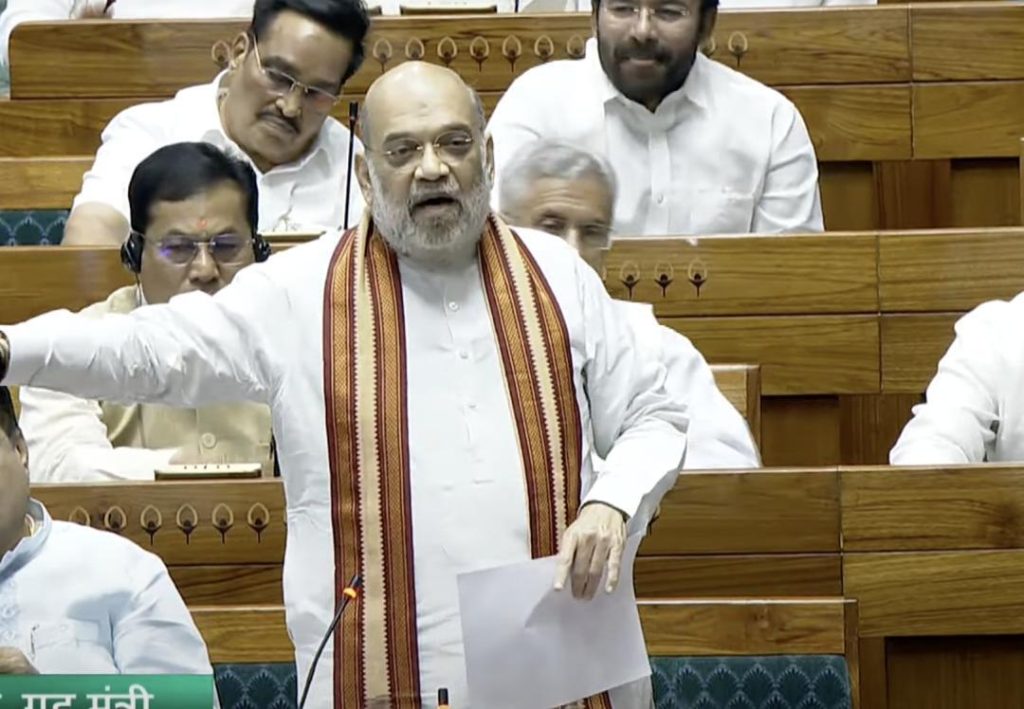
Title: Of Course We Are Responsible: Shah as Congress Questions Govt on Lapses over Pahalgam Attack
The recent terror attack in Pahalgam, Jammu and Kashmir, has sent shockwaves across the country, leaving many wondering about the lapses that led to the tragedy. The Congress party, in particular, has been vocal about the government’s responsibility in the matter, questioning the administration’s preparedness to prevent such attacks. In response, Union Home Minister Amit Shah has taken a bold stance, acknowledging the government’s responsibility for the incident.
Speaking to the media, Shah said, “Yesterday, they (Congress) were asking us where the terrorists came from and who was responsible for it. Of course, it’s our responsibility as we are in power.” His statement is a significant departure from the typical political rhetoric, where leaders often try to deflect blame and shift responsibility. By owning up to the government’s responsibility, Shah has set a new standard for accountability in the wake of the Pahalgam attack.
The Congress party, which has been critical of the government’s handling of the situation, has welcomed Shah’s admission. Party leaders have been pointing out the lapses in the government’s intelligence gathering and response mechanism, which they claim could have prevented the attack. The party’s chief spokesperson, Randeep Surjewala, tweeted, “The Home Minister’s statement is a rare moment of honesty. However, the question remains: what concrete steps will the government take to prevent such attacks in the future?”
Surjewala’s comment highlights the need for concrete action to prevent similar attacks. While acknowledging the government’s responsibility is an important step, it is equally crucial to ensure that measures are taken to prevent such incidents in the future. The government has announced an investigation into the attack, but it remains to be seen whether concrete steps will be taken to address the lapses that led to the tragedy.
In the immediate aftermath of the attack, the government claimed that it had received intelligence inputs about a possible attack, but these warnings were not acted upon. The Congress party has been critical of the government’s response, saying that it was slow and inadequate. Shah’s statement suggests that the government is willing to take responsibility for its mistakes, but it remains to be seen whether concrete action will be taken to prevent similar incidents in the future.
The Pahalgam attack has also raised questions about the government’s handling of the Kashmir situation. The region has been grappling with a surge in militant activities in recent months, and the attack has highlighted the need for a more effective strategy to address the issue. The government’s response to the attack has been criticized for being inadequate, with many calling for a more robust and effective approach to tackling the militant threat.
In the face of criticism, the government has announced a number of measures to improve its response to militant attacks. These include the deployment of additional security forces in the region and the enhancement of intelligence gathering capabilities. However, it remains to be seen whether these measures will be effective in preventing similar attacks in the future.
The Pahalgam attack has also highlighted the need for greater cooperation between the government and political parties. The Congress party has been critical of the government’s handling of the situation, but Shah’s statement suggests that there may be a willingness to work together to address the issue. The government has announced a meeting with opposition leaders to discuss the situation, and it remains to be seen whether this will lead to a more effective approach to tackling the militant threat.
In conclusion, Amit Shah’s statement acknowledging the government’s responsibility for the Pahalgam attack is a significant departure from the typical political rhetoric. It sets a new standard for accountability and suggests that the government is willing to take concrete steps to prevent similar attacks in the future. However, it remains to be seen whether these measures will be effective, and whether the government will be able to prevent similar incidents in the future.
As the investigation into the attack continues, it is essential that the government takes concrete steps to address the lapses that led to the tragedy. This includes improving intelligence gathering capabilities, enhancing security forces, and working with political parties to develop a more effective approach to tackling the militant threat. By doing so, the government can ensure that the Pahalgam attack is not repeated in the future.
News Source: https://x.com/ANI/status/1950090454533320902






